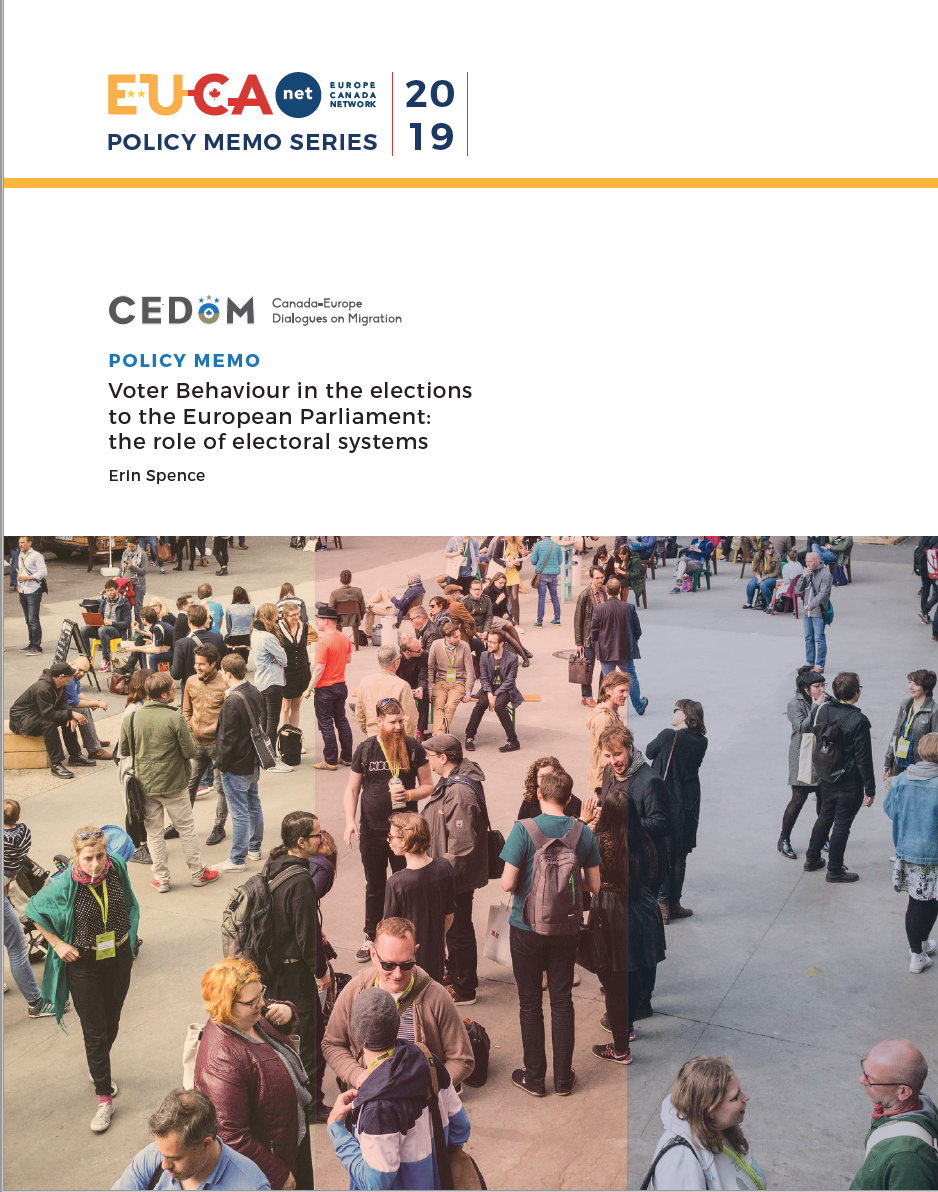Policy Memo – Voter Behaviour in the Election to the European Parliament
by Erin Spence, Canada-Europe Dialogues on Migration
The European Parliament (EP) is a transnational assembly that acts as the legislative branch of the European Union (EU). Each of the 28 member states contributes an allocated number of Members of the European Parliaments (MEPs) to this institution to debate legislation, check the power of the other European institutions, and direct the EU’s actions. Each country elects a proportional number of Members of the European Parliament to the EP every 5 years, much like national elections. Every member state follows the electoral system and rules of their choice (European Parliament 2009, 17-18). The Parliament has grown significantly in a short period of time; from its origins as a weak, representative assembly in the first 1979 elections, it has developed into a fully-fledged legislature with significant oversight over the EU’s budget, institutions, and policy.


